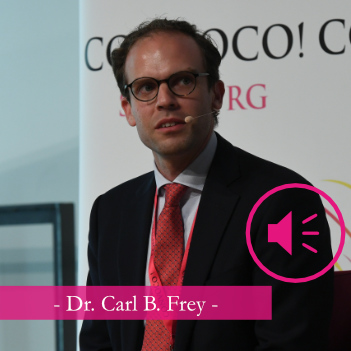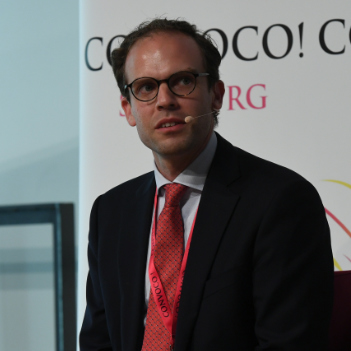
In our new CONVOCO! Podcast Corinne M. Flick speaks with Carl Frey, Director of the Future of Work programme at the Oxford Martin School, about:
Good News: Humans Remain at the Center of Work
Here’s what he said:
During the pandemic, we are executing existing ideas more than we are developing new ones.
Local knowledge networks still matter. …The digital world connects local networks in a way that could be very good for innovation in the long run, but what we see so far is more cause for pessimism.
We are moving towards a society where fewer and fewer people are going to work in either the production of goods or the production of services … There’s going to be more people participating in the creative process, rather than the execution and production process in advanced economies.
The long-term tendency is that innovation jobs will become more important. Coming up with new ideas and starting new businesses and projects, is something that is very much aided by face-to-face interactions. But looking at execution, we can see all throughout history that manufacturing companies don’t stick in the city centre where costs are high. They move out to the hinterland or offshore production. I believe we’re going to see more and more service tasks being subdivided and potentially offshored as well. That means we’re going to be left increasingly with exploration tasks, innovative jobs in advanced economies that still benefit from proximity. As a consequence, cities may actually become more important.
High streets will experience a revival from where they are now, but I expect the shift towards e-commerce to be permanent.
Generall speaking, offshoring reduces global inequalities at the expense of rising inequalities within advances econonomies, and that this economic polarisation drives political polarisation. The offshoring of services will extend that.
As China has become richer, the world has become more equal, at least historically. Now, China is firmly middle income in the world, and as China becomes richer in general, the world is becoming less equal.
On the metaverse: For most people, their networks are still local in the world. People still live close to their families and friends, and don’t move around. Why would they want to substitute their local life for a virtual type of interaction? … In my mind, it is too early to predict a step change.
[In 5 years’ time] I think we will have seen a significant relocation of workers away from sectors they used to be employed in into new sectors of the economy.


